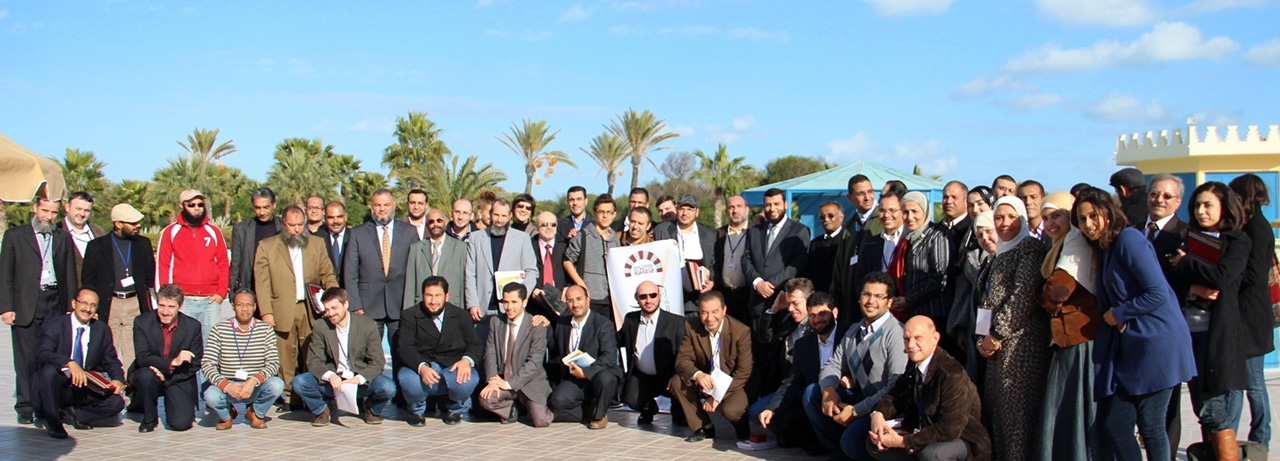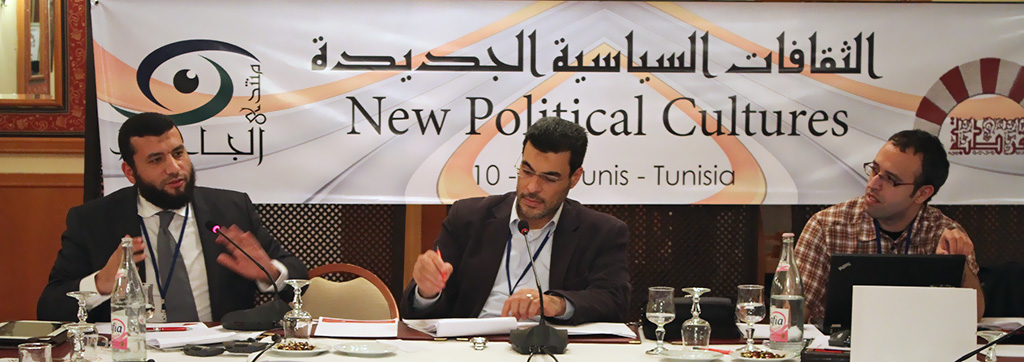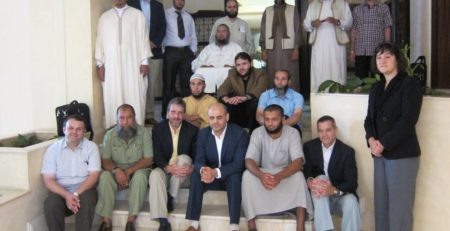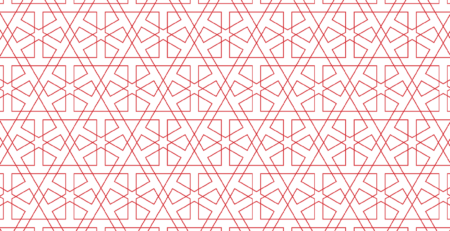New Political Cultures in MENA, Second edition: Tunis Meeting, 2012
New Political Cultures in MENA – Second edition –
The objectives of the NPC-II Forum in Tunis (December 10-12 2012) remained in the same spirit: develop, through a collective reflection, a better understanding of new political values and identify “consensual rules of collective political action” to reinforce peaceful change.
Executive Summary
Tunis: 10 – 12 December 2012



After the experience of the first edition of the NPC Forum organized in October in 2011 in Cairo, the objectives of the NPC-II Forum in Tunis remained in the same spirit: develop, through a collective reflection, a better understanding of new political values (participative, civic, pluralistic and inclusive, nonviolent, non-ideological approaches) and identify “consensual rules of collective political action” to reinforce peaceful change.
The Forum was organized in four transversal plenary sessions and six workshops, organized by country, to enable a multilevel exchange. In the Egyptian and Tunisian workshops, participants debated the stakes of the arrival to power of Islamist forces. The Morocco and Libya workshops opened discussions to find a possible combination between particular expectations and national priorities. In the Yemen and Syria workshops, an exchange took place on community conflict and possible ways to reconstruct national unity. The plenary sessions focused on creating an understanding of the transformation of political values in the region, assessing the risks of political and ideological polarization and discussing the ways to move beyond those risks by setting up consensual codes of conduct.
Participants were unanimous in saying that the collective experience of the revolutionary mobilizations remains a moment of inspiration for all the coming stages. But the current observation is one of a gap between the will to end the revolutionary cycle among institutional actors and the will to remain in a sort of “permanent revolution” among activist networks. This gap is the first source of tension in almost all the countries of the region, in the absence of clear and consensual rules of the political game to follow.
Participants agreed to say that pluralism is not just a political option but much more an essential necessity for the good functioning of any society. No current can or must monopolize or pretend to be the only one in possession of the common values: democracy is not a label owned by the liberals, social justice is not a preoccupation only for leftists, Islam is not exclusively the business of the Islamists, modernity is not a monopoly of secularism and change must not follow only the revolutionary path.
Therefore, all majority or minority political and social tendencies must dialogue and cooperate. The rapprochement and the partnership must not be a matter of political tactics and constraint. It must be a strategic choice and a principle.
Partnerships cannot develop in the frame of “diversity of fractures” without any dialogue, and conversely, they cannot be efficient in the framework of a “soft diversity”, with unconscious or pragmatic ignorance of identity and ideological differences. Partnerships must be made between currents which associate their ideological references to citizen values and transform them into political programs, by looking for the assent of citizens through dialogue, a rejection of violence and political exclusion.
Participants to the Forum underlined the urgency to redefine values and political standards in a consensual way by tracing red lines not to be crossed.
In order to move forward on the codes of conduct, the following recommendations have been made:
- The necessity for all actors -in public or private spaces, in mosques, the media- to curb all identity and political overstatements.
- No party should have the right to monopolize power or dominate the political process, especially in a transition period.
- The moderates of all currents must get together in order not to let non-dialogic actors guide the political process.
- The political competition must concentrate on political and electoral programs of political parties, and not on ideological and identity discourses and references.
- The goal must be to achieve large national coalition governments.
- The crowning achievement is the integration of the consensual codes of conduct in the constitution or laws.











